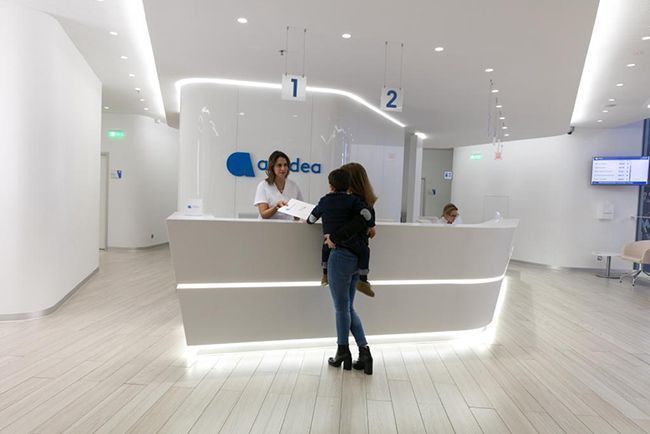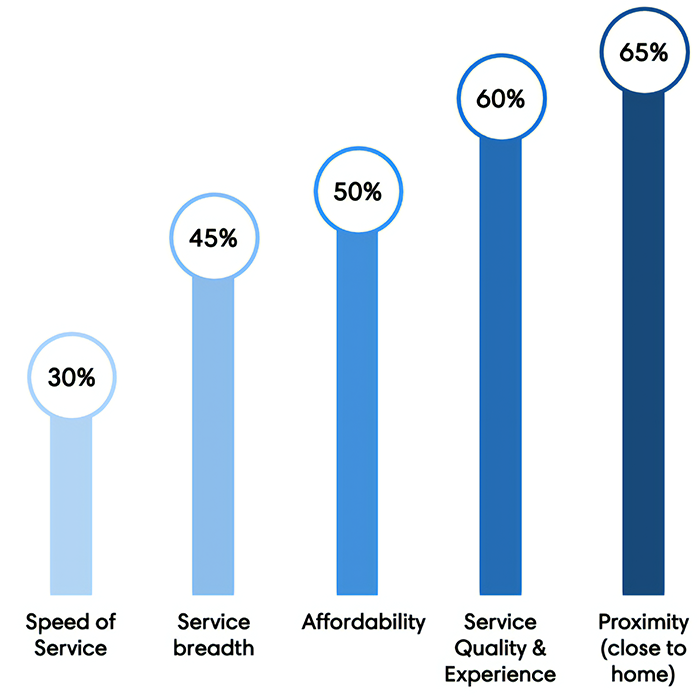HealthManagement, Volume 23 - Issue 3, 2023
The traditional healthcare landscape across Europe is undergoing a marked shift towards a patient-centred approach. Patients are no longer passive recipients, but active participants who make informed choices when selecting their healthcare providers based on service criteria, such as proven quality, accessibility, proximity and value. This evolution reflects a consumer-oriented mindset, where ‘consumers’ are encouraged to demand choice and make informed healthcare decisions, reshaping and owning their medical journeys.
Key Points
- Consumer behaviour has changed dramatically, with significantly more engagement by consumers in wellness and healthcare services.
- Technology and new innovations are the driving forces behind this change and will continue to be pivotal in advancing medical care.
- A consumer-centric approach is core to Affidea’s business model, where patients actively ‘shop’ for their provider and make informed decisions based on quality, accessibility and proximity.
- Striving for brand loyalty, as with many other consumer sectors, is increasingly important.
There has been increased emphasis on patient-centric care in recent years, driven by consumer behaviours changing dramatically with significantly more consumer engagement in wellness and health. Consumer interest in healthcare impacts their choice of provider, location, access and even health insurance. The transformation is more than a trend; it is marked by intensified engagement and patients owning their ‘health journeys’.
Affidea has been closely monitoring these trends in healthcare consumerism, understanding the significance of these shifts and embracing its role in defining a more patient-centric delivery model. Our commitment to setting new standards in patient care and service spans the whole patient journey and is underpinned by integrated technology and service innovation with the desire to enhance medical care and patient experience.
Central to this transformation is the role of IT, which increasingly enables a more personalised patient experience as well as enabling quicker diagnoses. At Affidea, we acknowledge that patients are no longer mere healthcare recipients of a ‘gatekeeper service’, but active participants seeking integrated, patient-centred care. The cultural barriers that once hindered access must be replaced by a seamless, high-quality care model that is effective, timely, and secure. This, being the case for all payor categories – Public, Insured and Self-Pay.

A consumer-centric approach is the essence of Affidea’s business, where we believe patients should be able to make an informed decision about their provider. In the post-COVID-19 era, there is a new sense of urgency. Swift diagnosis and treatment access are, of course, priorities, but in many European markets, the doctor or provider organisation no longer holds sole decision-making power. Instead, an empowered model has emerged, where patients have transitioned into informed consumers, carefully selecting their healthcare partners. In many European healthcare systems, patients are increasingly encouraged to select their community-based service provider – the public commissioning purse is increasingly following the patient!
At Affidea, we recognise the importance of viewing patients as intelligent consumers, each having legitimate expectations for both medical quality and exceptional experience. In this new landscape, the digital interface plays an important role in guiding patient choices, sometimes outweighing the initial provider recommendations from primary care physicians. To cater to this digital-savvy generation, information dissemination becomes paramount. Hence, as healthcare providers, we must provide patients with the relevant information they need to make decisions.
Furthermore, the shift to digital interfaces is material. Our analysis indicates that 60% of patients in our regions access healthcare services through smartphones or tablets. Post-pandemic, the rise of digital platforms for easy bookings has been exponential. An increasingly important factor in attracting patients now lies in accessibility, allowing them to conveniently schedule appointments with their desired specialists. As the industry continues to evolve, this digital interaction is set to accelerate.
What matters most to patients when selecting a provider
Proportion of surveyed patients who identified each factor as important
*Affidea Internal Sources
The consumer is now searching for service attributes in healthcare that are common in retail or other consumer services. Ease of booking, informed choices, comprehensive understanding, and flexible appointment selection have all become integral facets of patient expectations. Timely appointments, accompanied by seamless access to their digital records across any of the facilities they want, are now integral to their patient journey.
Recognising the role of women in healthcare decisions cannot be underestimated. Tailored targeting becomes essential, with nearly 80% of ‘family’ healthcare choices influenced by women and over 50% of appointments attended by women companions. Location is also an essential factor. A large majority of patients search with the words “near me”. Hence, proximity is key. Affordability is important, but falls much lower in the patient’s list of priorities.
In the shift to a more patient-focused care delivery model, affordability, while still important, now shares its priority status with service attributes. Today’s healthcare consumer seeks more than diagnosis and treatment. They demand high-quality services, digital and streamlined processes, convenient locations, swift access, and an in-depth understanding of their medical journey. The patient voice should and will get stronger.
At Affidea, we urge a future where patient-centric care is not just a concept but an everyday reality.
Disclosure of conflict of interest: Point-of-View articles are the sole opinion of the author(s) and they are part of the HealthManagement.org Corporate Engagement or Educational Community Programme.




